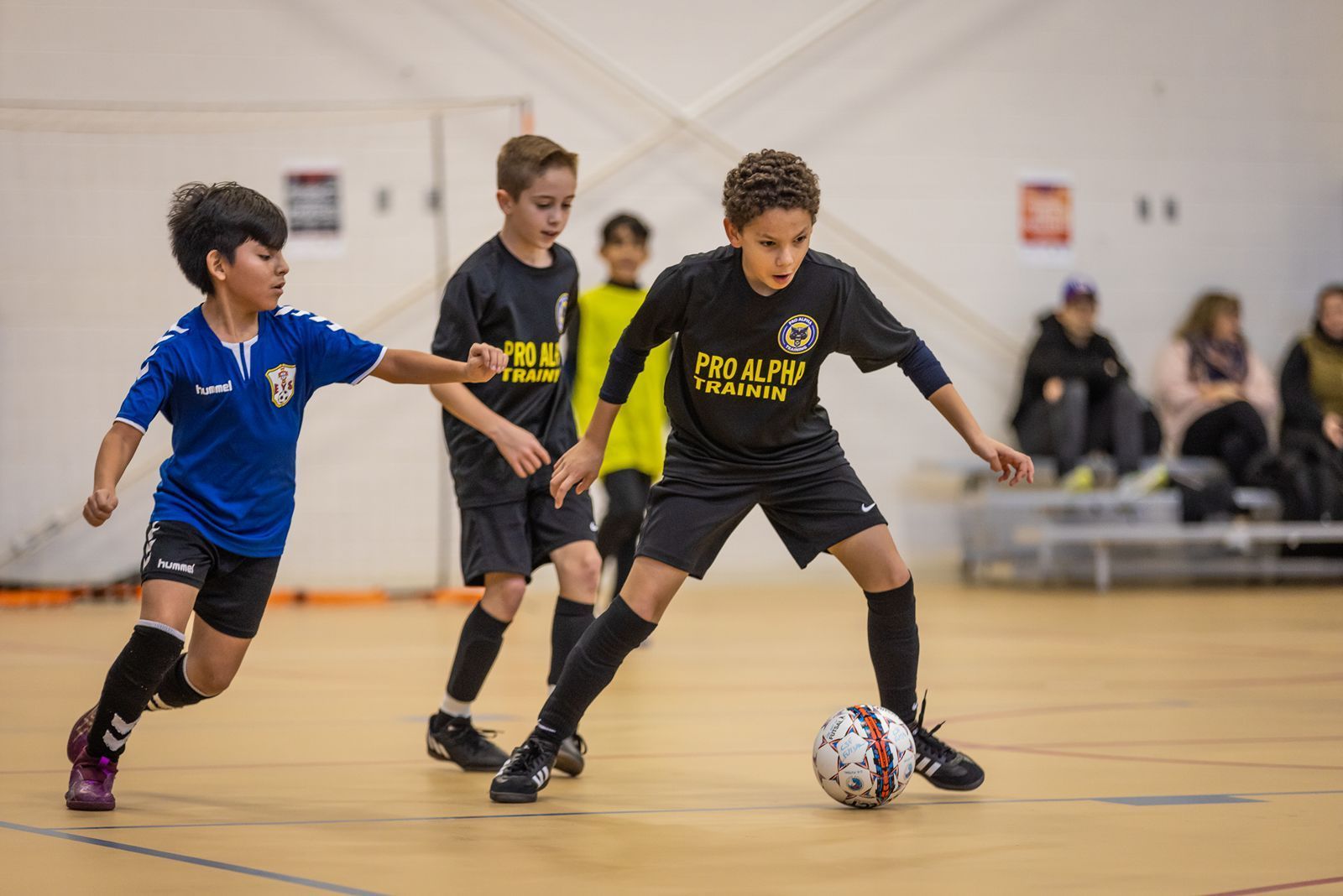Get in touch
555-555-5555
mymail@mailservice.com
From Soccer to Futsal: The Growing Trend of Dual-Sport Youth Athletes
From Soccer to Futsal: The Growing Trend of Dual-Sport Youth Athletes

Youth sports are evolving, and many parents are exploring new ways to develop their children's skills while keeping the joy of the game alive. A popular trend gaining traction is the combination of soccer and futsal, which gives young athletes the chance to refine their abilities in complementary environments. Here’s a look at why futsal is becoming an essential addition to soccer players’ training routines and how to effectively balance both sports.
Why Combine Soccer and Futsal?
- Enhanced Ball Control and Technical Skills Futsal is played on a smaller, indoor court with a heavier ball that doesn’t bounce as much as a soccer ball. This encourages players to keep the ball close, increasing their ball-handling skills under pressure. Soccer players who add futsal to their training quickly improve in touch, balance, and footwork. These technical skills easily transfer back to the outdoor field, giving soccer players an edge in close-contact situations.
- Improved Decision-Making and Speed of Play In futsal, players have limited time and space to make decisions, pushing them to think quickly and anticipate moves. This environment helps young athletes develop quicker reactions and strategic thinking, skills that are critical for soccer as well. By playing futsal, players become more adept at reading the game, making split-second decisions, and reacting fast—all of which can improve their overall performance in soccer.
- Focus on Individual Skill Development Since futsal games typically have fewer players on each team (5v5), each player gets more touches on the ball and is more actively involved in the game. This setup gives players more opportunities to develop confidence and refine individual skills like dribbling, passing, and shooting, which can sometimes get overlooked in larger soccer matches. For younger athletes, especially, futsal serves as a great complement to soccer, ensuring each child gets time on the ball and can grow technically.
- Better Physical Conditioning and Coordination The intensity of futsal promotes endurance and agility. The constant transition between offense and defense means players are always moving, helping them build stamina and coordination. Futsal’s smaller space also encourages players to develop agility and quick footwork, which are crucial skills for soccer. When athletes switch to soccer, they bring improved coordination and endurance, making them more resilient during games.
- Reduced Burnout and Injury Risk Playing the same sport year-round can lead to burnout and increase the risk of overuse injuries. By alternating between soccer and futsal, young athletes engage in slightly different movements, which helps reduce repetitive strain on certain muscles and joints. Switching sports also keeps their training fresh and exciting, allowing them to enjoy the game more and avoid burnout.
Tips for Balancing Soccer and Futsal Effectively
While the benefits of playing both soccer and futsal are clear, balancing the two sports requires thoughtful planning to avoid overtraining. Here are some tips for parents and coaches:
- Set Clear Goals for Each Sport For younger athletes, goals might focus on skill development and fun, while for older players, the focus could be on competitive growth. Understand what your child or athlete wants to achieve in both soccer and futsal and set up a training schedule that supports these objectives without overloading them.
- Create a Balanced Training Schedule To avoid overuse injuries, ensure there’s adequate recovery time. For example, if your child has an intensive week of soccer practice, balance it with a lighter week of futsal. Similarly, avoid scheduling games or tournaments for both sports back-to-back on the same day.
- Listen to the Athlete's Needs Kids grow and develop at their own pace, and it’s important to check in with them about how they’re feeling physically and mentally. If they seem tired or uninterested, it might be time to adjust the schedule. Allowing kids to rest and recover is essential for long-term enjoyment and success in both sports.
- Emphasize Skill Transfer, Not Competition Focus on how the skills developed in futsal can enhance their soccer performance, and vice versa. Keep the emphasis on development, especially with younger players, to build a strong technical foundation. By seeing futsal as a tool to complement soccer skills, kids can stay motivated and avoid feeling pressured by constant competition.
- Incorporate Off-Season or Supplemental Play Using futsal as a supplementary activity during the soccer off-season allows players to stay engaged with the sport without the same physical demands of a full outdoor field. This setup allows kids to remain active and keep their skills sharp during breaks in the soccer season, creating a natural rhythm that encourages growth without overextending.
The Future of Dual-Sport Training in Youth Sports
The growing popularity of dual-sport training, especially combining soccer and futsal, is transforming youth sports by emphasizing well-rounded skill development and athletic versatility. More and more parents, coaches, and players are discovering the benefits of this approach, which supports long-term athletic development and prevents burnout.
As more soccer programs embrace futsal as a training tool, young athletes can look forward to a richer, more diverse playing experience that builds essential skills for both sports. Whether they’re aiming to improve technical skills, agility, or strategic thinking, adding futsal to the training mix is a fantastic way for youth players to get better, not just busier. Contributed By: Niko Alexopoulos

We organize and host futsal leagues, tournaments, training at a fair price because we care about your kids.
All Rights Reserved | Central Jersey Futsal









